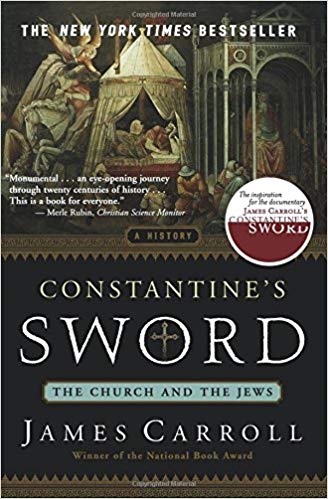10 Books for Reading on Long Nights of Winter
A Paul Volcker memoir, a Michael Lewis non-fiction thriller and a Pulitzer Prize winning history of the American Sea.
Bloomberg, November 26, 2018
It’s that time of year! With Thanksgiving behind us, and the long dark winter ahead, it is as good a time as any to assemble a list of books I hope to read this winter (my past lists are here).
These are what I find to be the most promising titles for cracking open in front of a fire, and dig in. I have hundreds of titles in my wish list to read, but these 10 are what I am most interested in right now.1
A few caveats: Most of these were published in 2018, with limited exceptions. Second, the list is based on my personal interests — not the pitches of book agents or publicists.2 And last, I will actually read — or at least start — all of them.
On to the book list!
No. 1. “Keeping At It: The Quest for Sound Money and Good Government,”by Paul Volcker.
He may be 91, but “Tall Paul” is still working at teaching the rest of us. Thank goodness for that.
The arc of Volcker’s career parallels sweeping economic changes in the U.S. since World War II. As Federal Reserve chairman, Volcker broke the back of inflation in the 1970s, set the stage for a 30-plus year bull market in bonds, and gets way too little credit for the rampaging equities bull market of the 1980s and 90s. Arguably the greatest Fed chairman all time, this book is at the top of my list.
No. 2. “Everybody Lies: Big Data, New Data, and What the Internet Can Tell Us About Who We Really Are,” by Seth Stephens-Davidowitz.
What happens when a data scientist delves into all of the data from Google Trends and Adwords, Wikipedia, Facebook and PornHub? As this vast, rich dataset reveals, it turns out that big data is a “digital truth serum.” Both The Economist and PBS NewsHour ranked this as their Book of the Year.
No. 3. “The Fifth Risk” by Michael Lewis.
Usually, we hear what book Lewis is working on next, but this one — about the lack of preparation by the Trump administration for assuming power — seemingly came out of nowhere. We first learned what the poet laureate of Wall Street was working on when this book was excerpted by The Guardianin September. It reads like a hurricane, and I expect to devour it over holiday vacation.
No. 4. “Valley of Genius: The Uncensored History of Silicon Valley (As Told by the Hackers, Founders, and Freaks Who Made It Boom),” by Adam Fisher.
We take for granted the growth engines that are technological innovations generally and Silicon Valley specifically. But the current turmoil shaking big tech (as foreshadowed by Scott Galloway in “The Four“) is confusing without context. Fisher’s deeply researched history of the past 60 years of technology provides that framework.
No. 5. “The Gulf: The Making of An American Sea,” by Jack E. Davis.
The winner of the 2018 Pulitzer Prize for History, this is a timely look at the “political and economic relationship with the environment from the age of the conquistadors to the present.” The Gulf of Mexico’s ecosystems helped to drive U.S. growth, and this book promises to explain just that. Edward O. Wilson called this “a unique and illuminating history of the American Southern coast and sea as it should be written.” Shorter version: The Gulf of Mexico has not fared especially well in the age of petrochemicals.
No. 6. “The Perfectionists: How Precision Engineers Created the Modern World,” by Simon Winchester.
Of all the things that drove the industrial revolution and the modern era, I never considered “precision” a crucial component. That oversight is corrected in this book. The author makes the case that manufacturing, technology, even the Digital Age wouldn’t have been possible without a level of precision previously unimaginable. I am intrigued by what some have called a gimmick — each chapter is succeeded by the next in increasing degrees of precision.
No. 7. “Dopesick: Dealers, Doctors, and the Drug Company that Addicted America,” by Beth Macy.
Most of what I know about America’s opioid crisis is via a “60 Minutes” episode. I hope this book will change that. It looks at regulatory capture by the pharmaceutical industry and regulatory failure by three U.S. administrations. “Dopesick” points out that opioid drug abuse may be the only thing that all Americans across geographic and class lines have in common.
No. 8. “Why We Sleep: Unlocking the Power of Sleep and Dreams,” by Matthew Walker.
Walker, a neuroscientist and sleep expert, is also the director of University of California-Berkeley’s Center for Human Sleep Science. Lack of sleep makes you “stupider, fatter, unhappier, poorer, sicker, worse at sex, as well as more likely to get cancer, Alzheimer’s and to die in a car crash.” This looks to be a fascinating dive into the simple question of why we sleep, and the more complex issue of why we have become so sleep deprived as a society.
No. 9. “Leadership: In Turbulent Times,” by Doris Kearns Goodwin.
How do great presidents respond to times of crisis? Does the leader make the times or do the times make the leader?
The acclaimed presidential biographer draws upon the lives of four presidents — Abraham Lincoln, Theodore Roosevelt, Franklin D. Roosevelt and Lyndon B. Johnson to answer these questions. Donald Trump is never mentioned, but as Bloomberg News observed the book “serve as an indirect critique of today’s hysterical political climate.”
No. 10. “Gridiron Genius: A Master Class in Winning Championships and Building Dynasties in the NFL,” by Michael Lombardi.
Imagine spending decades working alongside three of the greatest dynasty builders in NFL history. The results of that are Lombardi’s first-hand account of Bill Walsh in San Francisco, Al Davis in Oakland and, of course, Bill Belichick in New England. These teams were all systems, an example of building a process versus focusing solely on outcome. The takeaway lesson for corporate managers reading this book is that it isn’t the best players, but those who best fit in a specific system who will have the greatest impact.
Bonus read: In my reading list for the summer, I included Jim Chanos’recommendation for “A World Lit Only by Fire“(1992), by William Manchester. That led to several people recommending James Carroll’s “Constantine’s Sword: The Church and the Jews, A History“(2001). Carroll, a priest turned writer, is part memoir and part history of the schism of the church and Judaism, in particular the Church’s silence during the Holocaust.2 It comes heavily recommended, so I am looking forward to it.
__________
1. I just read “Big Debt Crises” by hedge-fund manager Ray Dalio for our MIB Live; otherwise that would be here as well.
2. The included link to Amazon generates a modest fee for any purchases; as we do each year, proceeds are donated to a charity.
3. The book which just barely missed my top 10 this year is “How to Change Your Mind: What the New Science of Psychedelics Teaches Us About Consciousness, Dying, Addiction, Depression, and Transcendence” by Michael Pollan.
1. Keeping At It: The Quest for Sound Money and Good Government by Paul Volcker
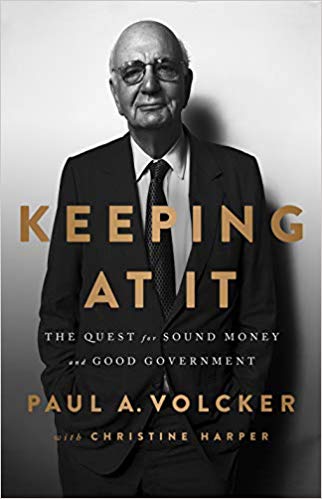
2. The Fifth Risk by Michael Lewis
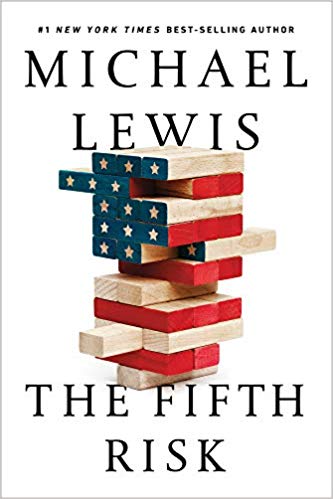
3. Everybody Lies: Big Data, New Data, and What the Internet Can Tell Us About Who We Really Are by Seth Stephens-Davidowitz
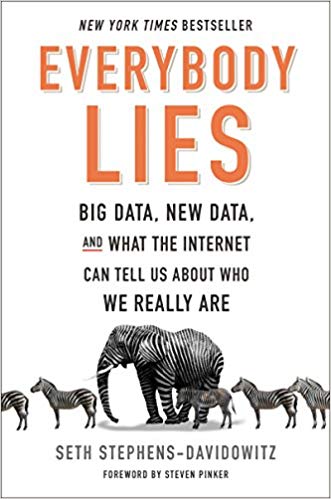
4. Valley of Genius: The Uncensored History of Silicon Valley (As Told by the Hackers, Founders, and Freaks Who Made It Boom) by Adam Fisher
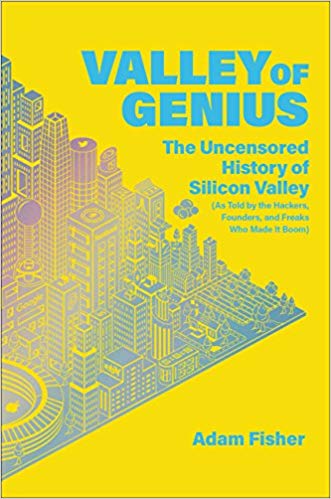
5. The Gulf: The Making of An American Sea by Jack Davis

6. The Perfectionists: How Precision Engineers Created the Modern World by Simon Winchester
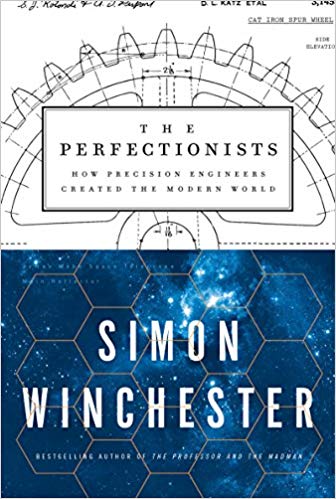
7. Dopesick: Dealers, Doctors, and the Drug Company that Addicted America by Beth Macy
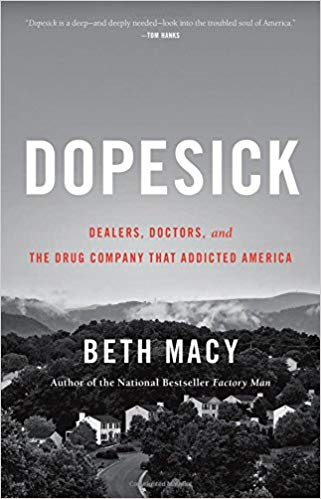
8. Why We Sleep: Unlocking the Power of Sleep and Dreams by Matthew Walker
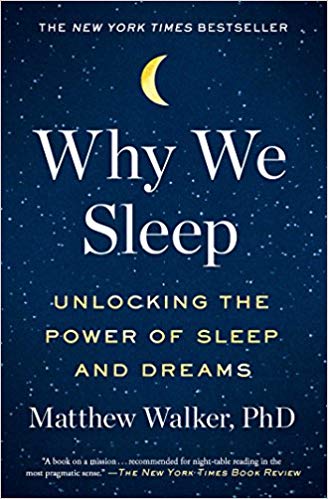
9. Leadership: In Turbulent Times by Doris Kearns Goodwin

10. Gridiron Genius: A Master Class in Winning Championships and Building Dynasties in the NFL by Michael Lombardi
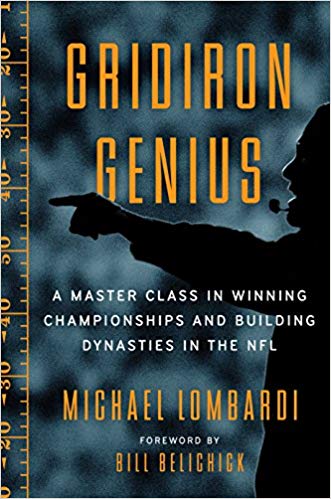
BONUS: Constantine’s Sword: The Church and the Jews, A History by James Carroll
